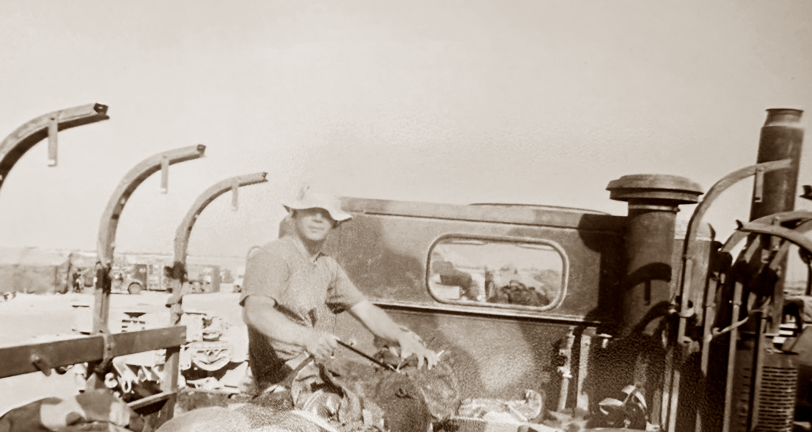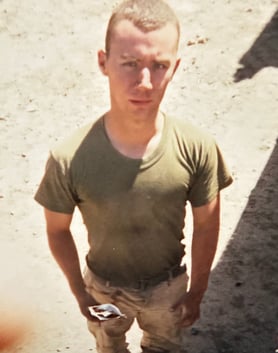The Weight of Anniversaries: Recognizing Trauma and Prioritizing Mental Health
The Importance of a Safety Mindset Beyond Physical Protection March 20th marks a significant day for me—the anniversary of my deployment to Iraq at 20 years old. Over the years, I have learned that safety isn’t just about physical precautions. It includes mental health too. Traumatic anniversaries affect us all differently, and recognizing emotional well-being is just as important as situational awareness. Whether in law enforcement, military, or daily life, mental resilience plays a key role in preparedness. Stay sharp, stay safe, and take care of yourself. #SafetyMindset #MentalResilience #PersonalSafety #SituationalAwareness
HISTORY COMBATSAFETYDARKWING TECH MILITARYVETERAN EQUIPMENTMENTAL HEALTHVETERAN STORIESSAFETY MINDSET
Sgt. Dan Thomas (Retired)
3/18/20254 min read


The Weight of Anniversaries: Recognizing Trauma and Prioritizing Mental Health
March 20th has always been a significant day for me. It marks the day, at 20 years old, that I crossed into Iraq as a Marine during the 2003 invasion. Over the years, that date became something of a milestone. I did not choose it, but it chose me. As my career continued into law enforcement, I found that other significant, often traumatic, events seemed to cluster around that same timeframe. It was as if my life had a cycle, an unspoken rhythm, where history and memory intertwined in ways that I could not ignore.
The thing about anniversaries of traumatic events is that they affect us all differently. Some people wake up and feel the weight of the date before they even glance at a calendar. Others do not recognize its significance until a smell, a sound, or a news story drags them back into the moment. Sometimes, it is a slow burn, an unexplained mood shift, restlessness, or even physical symptoms like headaches or fatigue. However it manifests, trauma does not keep a schedule, but it does leave markers along the way.
The Safety Mindset: More Than Just Physical Precautions
For those of us who have spent our lives in careers focused on protecting others, whether in the military, law enforcement, or public safety, having a safety mindset is second nature. We train for worst-case scenarios, carry the right gear, and anticipate danger before it happens. But what we do not always train for is how to protect ourselves mentally.
A safety mindset is not just about wearing the right equipment, checking your surroundings, or being physically prepared. It is also about understanding the impact of trauma and taking proactive steps to manage it. Just like we take precautions to protect ourselves in the field, we have to take precautions to protect our minds from the weight of experiences that can wear us down over time.
(LCPL. Thomas Iraq, 2003. 3 months into the deployment, lost about 30lbs of body weight)
How Physical Trauma Manifests in Memory
Physical trauma also plays a huge role in this. When people think of combat deployments, they often forget how physically tolling they are. From lack of sleep, constant injuries, starvation, and dehydration, to sleeping on the ground and eating food filled with sand, the body remembers. Those experiences manifest in ways we don’t always expect.
Years later, the physical toll lingers. Joint pain, headaches, and exhaustion can resurface without warning, triggered by the memory of those hardships. Sometimes, the body recalls pain before the mind does. You may not remember a specific event, but your body does. It aches in ways you cannot explain, reminding you of the wear and tear that service takes on a person.
Understanding this connection is just as important as recognizing external dangers. A safety mindset means taking care of the physical as much as the mental. We cannot separate the two.
Recognizing and Managing the Impact
So how do we acknowledge these anniversaries without letting them take control? Here are a few things that have helped me:
✔ Acknowledge the significance – Ignoring a tough day does not make it disappear. Sometimes, just recognizing why you feel a certain way can be enough to manage it.
✔ Find an outlet – Whether it is working out, journaling, or talking with someone who understands, do not let the memories bottle up.
✔ Change the meaning – Instead of letting the day be one of pain or loss, find a way to use it for something positive. Volunteer, reconnect with friends, or simply focus on gratitude.
✔ Check in on others – You are not the only one remembering. Reach out to a buddy, a coworker, or someone you served with. A simple “Hey, thinking about you today” can mean a lot.
✔ Give yourself grace – If you are feeling off, that is okay. You do not need to justify your emotions to anyone, not even yourself.
Looking Ahead
The past shapes us, but it does not define us. Having a safety mindset means recognizing when we need to shift our focus from external threats to internal ones. It means understanding that mental health is safety and acknowledging that taking care of ourselves is not a weakness, it is a necessity.
For those who have their own dates burned into memory, you are not alone. And for those who might not understand, just know that sometimes, the hardest battles are the ones we fight within ourselves.
If March 20th or any other date means something heavy to you, take a breath, take stock, and remember: You are still here. And that matters.
A Final Note
I am not a doctor or a mental health professional. Everything I have shared comes from my personal experiences and what has helped me. If you or someone you know is struggling, please reach out to a professional or talk to someone you trust.
If you need immediate help, here are some resources:
📞 Veterans Crisis Line – Dial 988 then Press 1
📞 National Suicide Prevention Lifeline – 988
📞 CopLine (Law Enforcement Support) – 1-800-267-5463
📞 Safe Call Now (First Responder Support) – 1-206-459-3020
You are not alone. Help is available.


